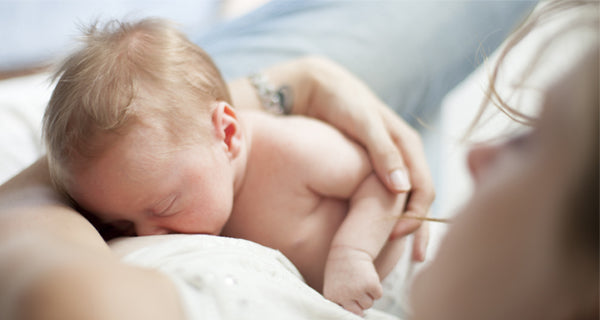Today we are pleased to share a post on the topic of childhood sexual abuse and breastfeeding, by Dianne Cassidy, the author of the new book: Clinics in Human Lactation: Emotional and Physical Trauma.
Recognizing that more than 20-25% of women have been sexually abused, 25% have experienced intimate partner violence, and an untold number of mothers have experience birth trauma; this book discusses important strategies for working with mothers who are survivors of emotional and physical trauma.
In spite of the challenges that a history of abuse can pose, many abuse survivors do breastfeed (in fact, one study found an increased likelihood).
For more information on this complex and important topic, we would recommend this podcast interview with Penny Simkin on early sexual abuse and breastfeeding and this podcast interview with Kathleen Kendall-Tackett on birth trauma and breastfeeding.
DIANE'S BACKGROUND
When I first began working with new mothers, it was with a local community program. The more women I was meeting, the more I saw a link between breastfeeding and trauma. Most of the women that I assisted had a limited support system available to them, and limited education. As a bond was built during pregnancy, sometimes a new mother would open up and talk about her personal history, things that she may have endured during childhood, or in the not-so-distant past.
I have heard some terrible stories. Many of these stories come with a happy ending of sorts – the fairy tale where the woman finds her strength and confidence and realizes that she is capable. Some are not as favorable, and can haunt you for years. I became more and more interested in how abuse can impact a woman’s decision to breastfeed. I decided to make this the topic of a research project while completing my bachelor's degree a couple of years ago. When I tell others that this is something I am interested in, I usually get the same response: “Oh, this is so important.” Yet at the same time it is a difficult topic to come face-to-face with.
WHAT THE RESEARCH SHOWS
While doing my research, the literature review unearthed some interesting information about abuse and breastfeeding, particularly child sexual abuse (CSA) and how this may impact breastfeeding initiation. When working with the community programs, one of the areas of focus in breastfeeding support was teen mothers. We have a pretty high rate of teenage pregnancy here (enough that there is an entire high school dedicated to teen mothers) and teen mothers have been known to have a low breastfeeding rate.
Childhood sexual abuse prevalence among adolescent mothers is close to 50%. Adolescents who have been abused as children are more likely to become sexually active at a younger age than those not abused. Adolescent survivors of CSA are three times more likely to become pregnant than those who are not abused. Studies reflect that breastfeeding is not readily initiated among adolescent mothers. This is not to say that these mothers will not initiate breastfeeding at all, but those who do initiate are more likely to wean earlier than adolescent mothers who are not victims of CSA.
BREASTFEEDING CHALLENGES FOR CSA SURVIVORS
One of the most wonderful things about breastfeeding is the close, intimate connection between mother and baby. For a survivor of CSA, this may be an unfamiliar, unwelcome sensation. Intimacy disturbance and dissociation are consequences that are likely to influence feeding decisions of adolescent mothers. CSA victims and survivors may struggle with trust issues, building relationships and emotions. Abusers are often someone that the victim is familiar with – family friend or relative for example, leading to feelings of betrayal and vulnerability.
Trust is a tricky thing. It’s important that a woman has a good relationship with her provider - a trustworthy relationship. Without this, information is skewed. Communication is key. It may be difficult for a survivor to confide her concerns regarding her feeding choice to someone if a relationship of trust has not been established. When preparing for labor, a provider can gain the trust of her patient if she listens carefully and validates her feelings, exploring concerns she may have with regard to breastfeeding. When working with expectant women, and in particular adolescent mothers, education is an important part of breastfeeding initiation. Educate expectant mothers about their feeding choices in a non-judgmental manner. Mothers with CSA history are likely to have come from a family environment that is chaotic, deprived, and emotionally dysfunctional.
Every new mother and baby deserves the opportunity to enjoy a breastfeeding relationship, free of distress, no matter what their history may be. I feel honored that I have been able to assist with offering this to survivors, encouraging mothers and babies to get the best start in their life together.
Dianne Cassidy, IBCLC, holds a MA in Health and Wellness with a lactation concentration, and a BS in Maternal Child Health/Lactation. She resides in Rochester, New York. Dianne works in private practice, and in a busy pediatric office, and teaches breastfeeding and childbirth to expecting families in the hospital setting.



